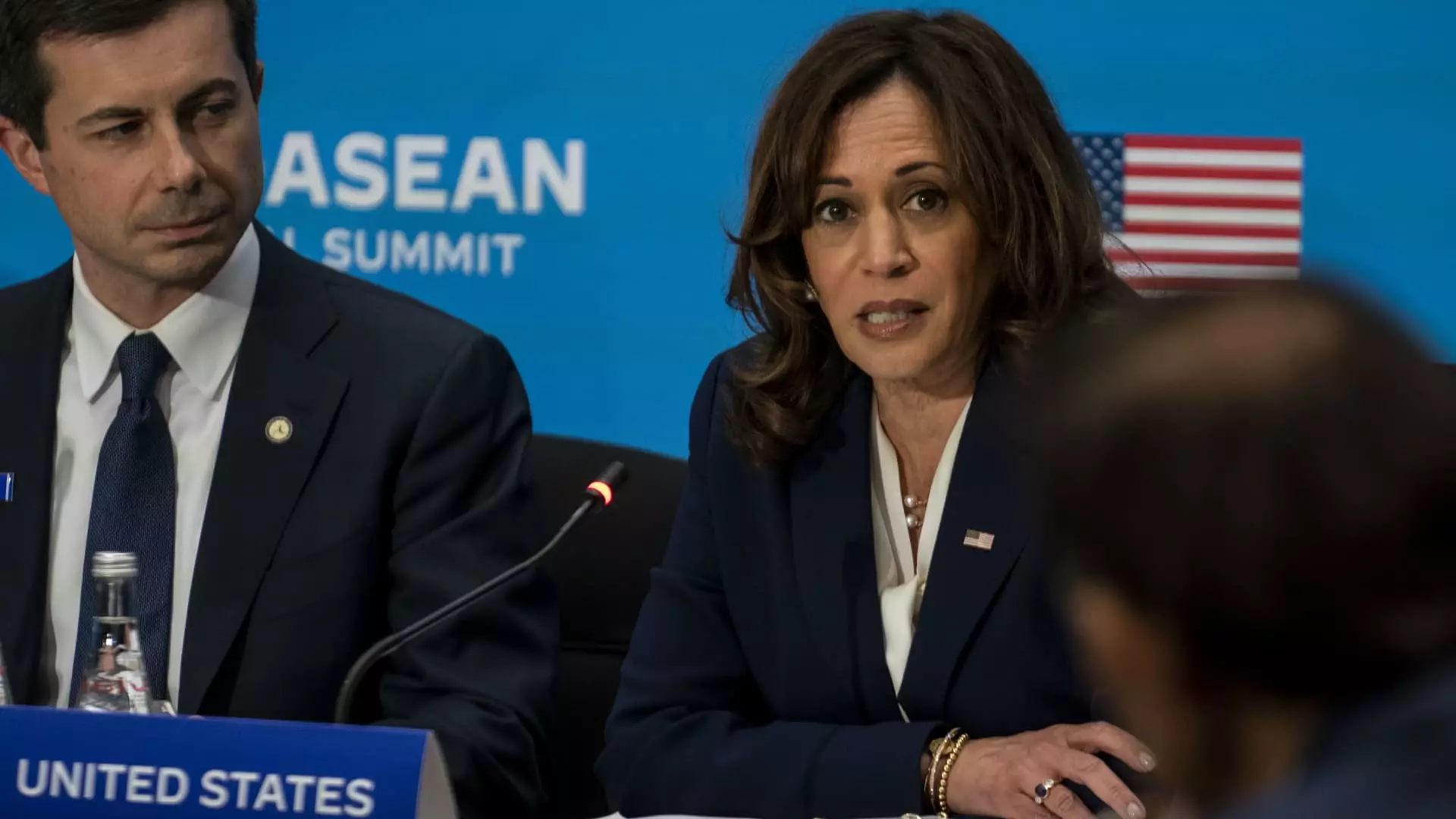Vice President Kamala Harris is set to embark on her third trip to Southeast Asia and fourth to Asia overall. Her visit to Jakarta, Indonesia, for an international summit comes at a crucial time for the Biden administration. President Joe Biden’s absence at the summit has raised doubts about the United States’ commitment to the region. However, Harris’s repeated visits and meetings in Southeast Asia have positioned her as a key interlocutor in the administration’s efforts to counterbalance Chinese influence and establish a network of partnerships. As Harris prepares for the upcoming campaign year, this latest journey presents her with an opportunity to enhance her foreign policy credentials.
ASEAN: Struggling to Assert Its Role
The decision for President Biden to skip the Association of Southeast Asian Nations (ASEAN) summit has caused some frustration, especially since he will be visiting India and Vietnam around the same time. The absence of the President has been perceived by some as a disregard for ASEAN’s significance in the region. Nevertheless, ASEAN itself is currently facing challenges in convincing world leaders of its central role. Despite representing over 650 million people across ten nations with the world’s fifth-largest economy, ASEAN has struggled to resolve civil strife in Myanmar and ongoing negotiations over territorial claims in the South China Sea. Additionally, internal disagreements among member nations regarding the global competition between the United States and China have further complicated ASEAN’s cohesion.
Former Indonesian foreign affairs minister Marty Natalegawa believes that ASEAN must engage in introspection and improve its effectiveness to garner greater attendance and attention from world leaders. Natalegawa suggests that complaining about other countries’ lack of respect or participation in ASEAN summits is unproductive without first addressing internal challenges. He stresses that unless ASEAN becomes more effective, the organization’s influence may continue to diminish.
While some perceive President Biden’s decision to skip the ASEAN summit as a snub, the White House rejects this notion. According to John Kirby, a White House national security spokesman, the administration’s agenda remains committed to its alliances and partnerships in the Indo-Pacific region. Kirby highlights President Biden’s previous hosting of the first Washington summit with ASEAN leaders as evidence of the administration’s engagement. Vice President Harris’s presence at the summit further emphasizes the administration’s attention and commitment to the region.
Harris’s Presence and Engagement
Vice President Harris’s attendance at the ASEAN summit allows the United States to maintain its presence and engagement in an event that may not yield significant progress on key issues. According to Ja-Ian Chong, a political science professor at the National University of Singapore, sending the vice president signals attentiveness to the region. Harris’s meetings in Jakarta will provide an opportunity for individual talks with foreign leaders and engagement with countries in the region. While President Biden heads to the Group of 20 summit in India and plans to strengthen ties with Vietnam, Harris’s presence in Jakarta serves as another avenue for the United States to establish and nurture partnerships in Southeast Asia.
Navigating Tensions in the South China Sea
The ASEAN summit in Jakarta takes place amidst heightened tensions in the South China Sea following China’s release of a new official map that reiterates its territorial claims. This move has drawn criticism from other nations with territorial interests in the region. It has also presented an opportunity for the United States to forge stronger partnerships as it seeks to deter Chinese aggression. Former Assistant Secretary of State David Stilwell believes that China’s aggressive approach creates an opening for the United States to establish alliances and partnerships in the region.
China: The Top Foreign Policy Challenge
President Biden has consistently emphasized that China is the United States’ top foreign policy challenge. Despite recent attention on the Russian invasion of Ukraine, Biden remains steadfast in his commitment to address China’s growing influence. He has described much of his domestic and overseas agenda as efforts to deter Beijing from surpassing Washington as the most powerful force globally. Biden’s concerns extend beyond economic and strategic competition, as he also warns about the potential consequences of China’s economic and demographic challenges.
Harris’s Role in Countering Chinese Influence
Vice President Harris has been actively involved in countering Chinese influence through her visits to Asian countries. Her previous trips to Singapore and Vietnam, Japan and South Korea, and the Philippines and Thailand have all been focused on addressing the global rivalry with China. Her presence in Jakarta continues this ongoing effort to maintain regional stability and support partners in the face of Chinese coercion. As the highest-ranking U.S. official to visit Palawan, a Filipino island at the center of territorial disputes, Harris reaffirmed Washington’s commitment to the region and its determination to confront China’s actions.
Vice President Kamala Harris’s visit to Jakarta for the ASEAN summit signifies the United States’ continued engagement in Southeast Asia. It offers an opportunity for Harris to strengthen partnerships in the region and bolster her foreign policy credentials. While President Biden’s absence may have stirred doubts, Harris’s repeated visits and meetings in Southeast Asia solidify her role as a key interlocutor in countering Chinese influence. The ASEAN summit also serves as a platform to address challenges within the organization and navigate tensions in the South China Sea. As China remains a top foreign policy challenge, Harris’s presence and engagement contribute to the United States’ efforts to maintain regional stability and support its partners.


Leave a Reply